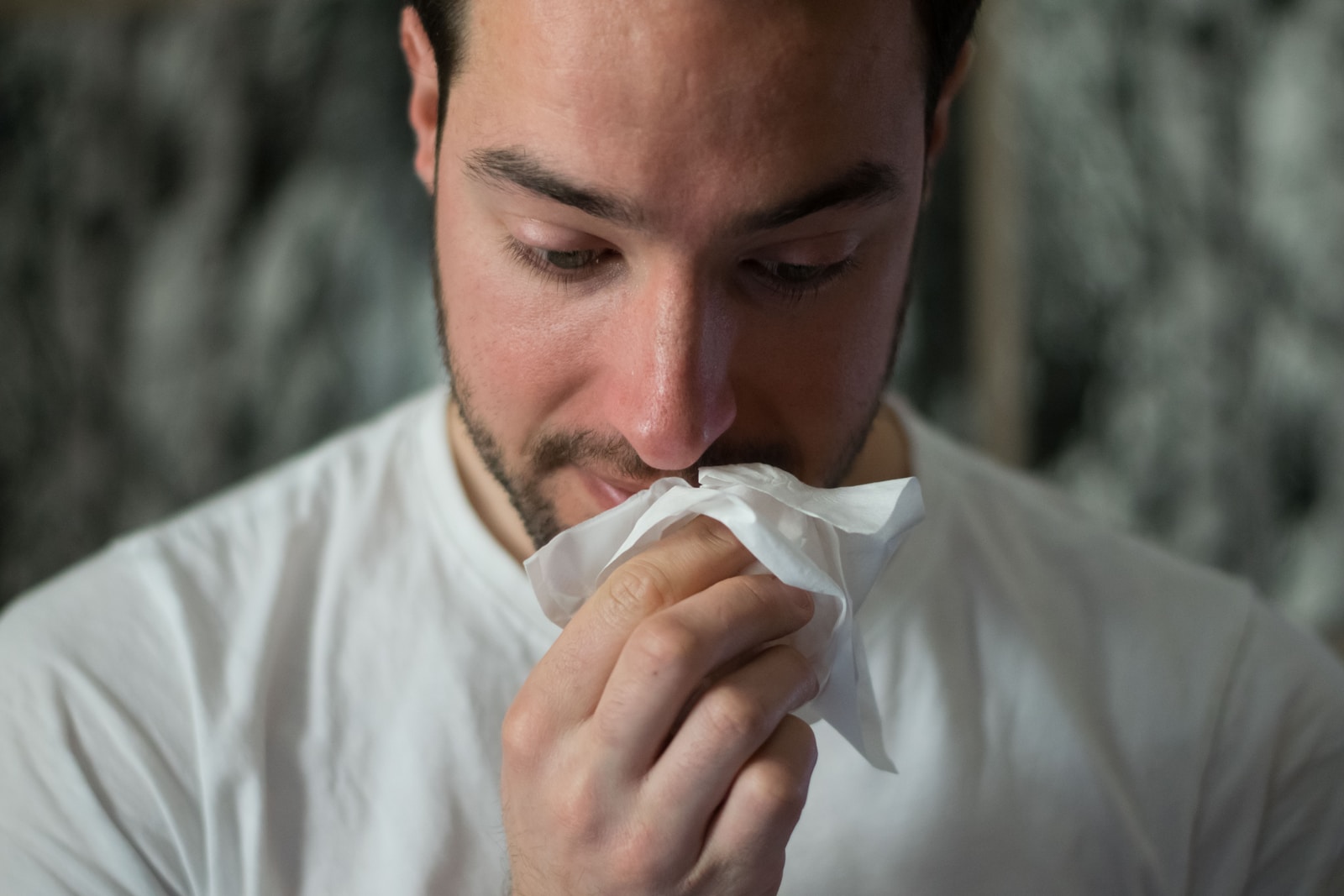Seasonal Allergies masked by Coronavirus
The Coronavirus pandemic has many people concerned about symptoms that could be potentially related to this virus. If you have a small sniffle or chronic cough, does it mean that you need to be tested for COVID-19? While these symptoms could potentially occur in people with Coronavirus, the symptoms could be an indication of other health concerns – such as allergies or a head cold. The truth is that many people are worried that they have Coronavirus when they actually need to talk to a doctor or nurse about seasonal allergies.
The best thing you can do is schedule a virtual or in-office appointment to discuss your concerns with a medical expert. Our online appointments are safe, secure, and easy to do. For in-office appointments, our facility is thoroughly cleaned after every patient, and social distancing is not a problem. This virus is relatively new, and our team is here to guide your treatment plan based on your unique needs in-person or online.
Distinguishing Allergies from Coronavirus
Here are a few things to keep in mind if you are trying to decide whether you have allergies or Coronavirus:
History of Health Symptoms: Have the symptoms recently started, or are they chronic or ongoing? For example, if you notice that the symptoms are recurring, then it is likely that you are dealing with allergies. These symptoms are most common in the spring and summer months, which means that many patients are experiencing an increase in symptoms right now.
Environmental Triggers: If you have seasonal allergies, then you will notice that the symptoms increase in severity when you are exposed to your allergy triggers. When you spend time outside, do you find that your nose is runny and you are sneezing more often? It’s likely that your symptoms are worsening because of exposure to dust, pollen, or animal dander.
Sneezing: It’s not typical for Coronavirus patients to sneeze. Is your congestion or runny nose co-occurring with sneezing? The sneezing is an indication that your diagnosis is probably allergies.
Focus of Symptoms: Considering your overall symptoms can be an important factor in determining whether you have COVID-19. Seasonal allergies tend to affect only the upper respiratory tract (nose, sinuses, and throat), while viruses can impact the entire body. If you have generalized symptoms such as body aches and fevers, then it could be a sign that you are sick.
Shortness of Breath: One sign that it could be Coronavirus (and not allergies) is if you have shortness of breath. For most COVID-19 patients, the shortness of breath begins within 5 – 10 days of the onset of a fever. The timeline varies depending on the patient, but if you are having difficulty breathing then it could be an indication that you need to be tested for Coronavirus.
This information can help you distinguish to get an idea of the cause of your symptoms. But the best solution is to talk to a medical expert for professional recommendations.
Telemedicine for Allergy Treatments
At University Urgent Care, we offer convenient access to ER nurse practitioners. One option you might consider is booking an online appointment if you prefer to stay at home during the Coronavirus pandemic. Our patients are our priority, which is why we offer digital access in your time of need. During a video-chat appointment, you can meet with a nurse and discuss your symptoms. Together, we can identify the underlying cause of symptoms. Then, we will select a proper treatment plan to reduce your discomfort and help during your time of need. Your nurse practitioner will ask specific questions during the conversation to determine if your symptoms are the result of allergies, or if they are indications of another health concern. The video element also allows you to share details about physical symptoms that might be occurring, such as a visible rash or hives.
Potential Allergy Treatments
If it is determined that you need treatments for allergies, then several options will be considered to determine the best solution for your needs. These treatments are selected based on the severity of the infection as well as the specific symptoms you are experiencing.
Common allergy treatment recommendations include:
- Over the counter antihistamine medication
- Nasal spray with steroids to manage inflammation
- Prescription medications
If prescriptions are needed, then our team can send your medication information to your preferred pharmacy of choice. Many pharmacies offer drive-thru services, which means that you can pick up your medication without stepping foot in a public store.
Online Appointments for Allergies and Other Medical Concerns
It’s no surprise that online appointments are gaining in popularity right now. Patients love the benefit of talking to a doctor without worrying about social distancing and other concerns during this Coronavirus pandemic.
If you are experiencing allergies or other medical symptoms, rest assured to know that you don’t need to just “wait it out” until the pandemic is over. Our team at University Urgent Care is providing ongoing medical care, including online appointments for our patients. Simply call our office to schedule a virtual appointment with one of our ER nurse practitioners: (817) 697-0700.

